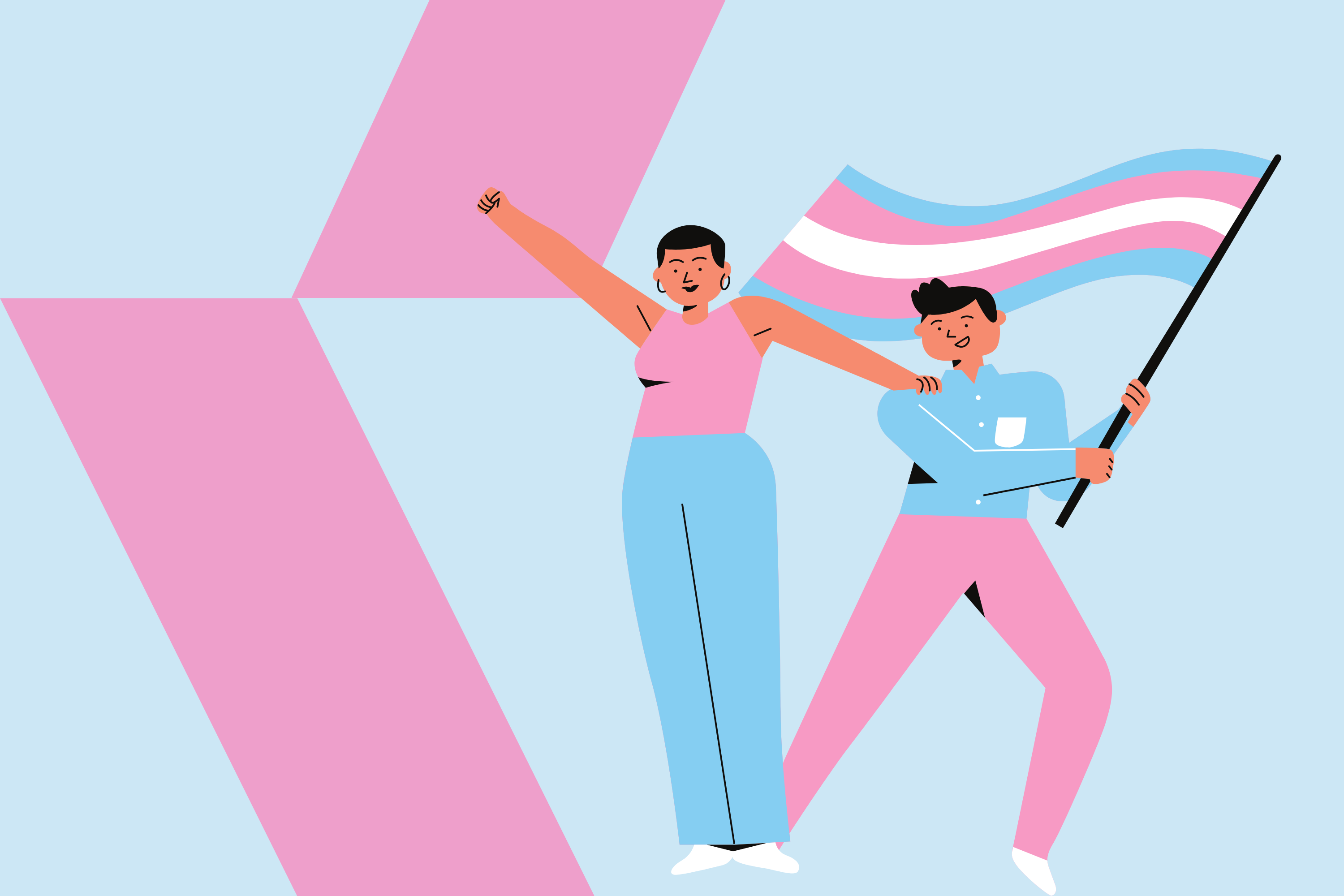International Transgender Day of Visibility (TDOV) is an annual event on 31 March, dedicated to:
- Celebrating transgender people.
- Acknowledging the courage it takes to live openly and authentically.
- Raising awareness of discrimination faced by transgender people worldwide.
Show your support
You can show your support to trans students and colleagues on TDOV by…
⚧️ Choosing to display your pronouns on your signature and your Teams profile
🏳️⚧️ Using a trans flag backdrop for your video calls on 31 March
🌈 Wearing one of our Rainbow Lanyards, based on the Inclusion Flag
🎓 Completing the Trans Awareness Training (staff)
📃 Familiarising yourself with our policies, guidance and terminology
🔎 Finding out more about TDOV and why it is so important
Learn more about trans experiences and history
Listen to a wide range of trans people sharing their experiences
There’s no single universal trans experience. Take the time to listen to as many trans experiences as possible and recognise how their lives are shaped not only by their genders but also by the intersections of other aspects of their identities.
Here are links to just a few different accounts of trans people’s experiences:
Some of the history of trans visibility and equality activism
Throughout history there have been people who didn’t identify with the sex they were assigned at birth. While the terminology they used to describe themselves has varied over the centuries, they have always existed and been visible in their local communities.
Trans activism didn’t start in just the last few years. Over the last century, trans people have fought for equality in a wide range of ways. Many trans people around the world have taken to the streets in protest against police harassment – most famously Sylvia Rivera at the Stonewall Riots in 1969.
Others have used the courts to push for legal rights. For example, in 1952, an upper class Scottish trans man, Sir Ewan Forbes of Craigievar, succeeded in getting his birth certificate changed from female to male. Unfortunately, the court records were made secret so April Ashley’s lawyers were not able to access them during her divorce court case in 1970 which severely set back trans people’s access to legal gender recognition in the UK.
Read Christine Burns’ brilliant memoir, Pressing Matters, to find out how key trans legal rights were secured in the UK.
Written by Lynne Regan, Student Support and Wellbeing, 15.03.23
